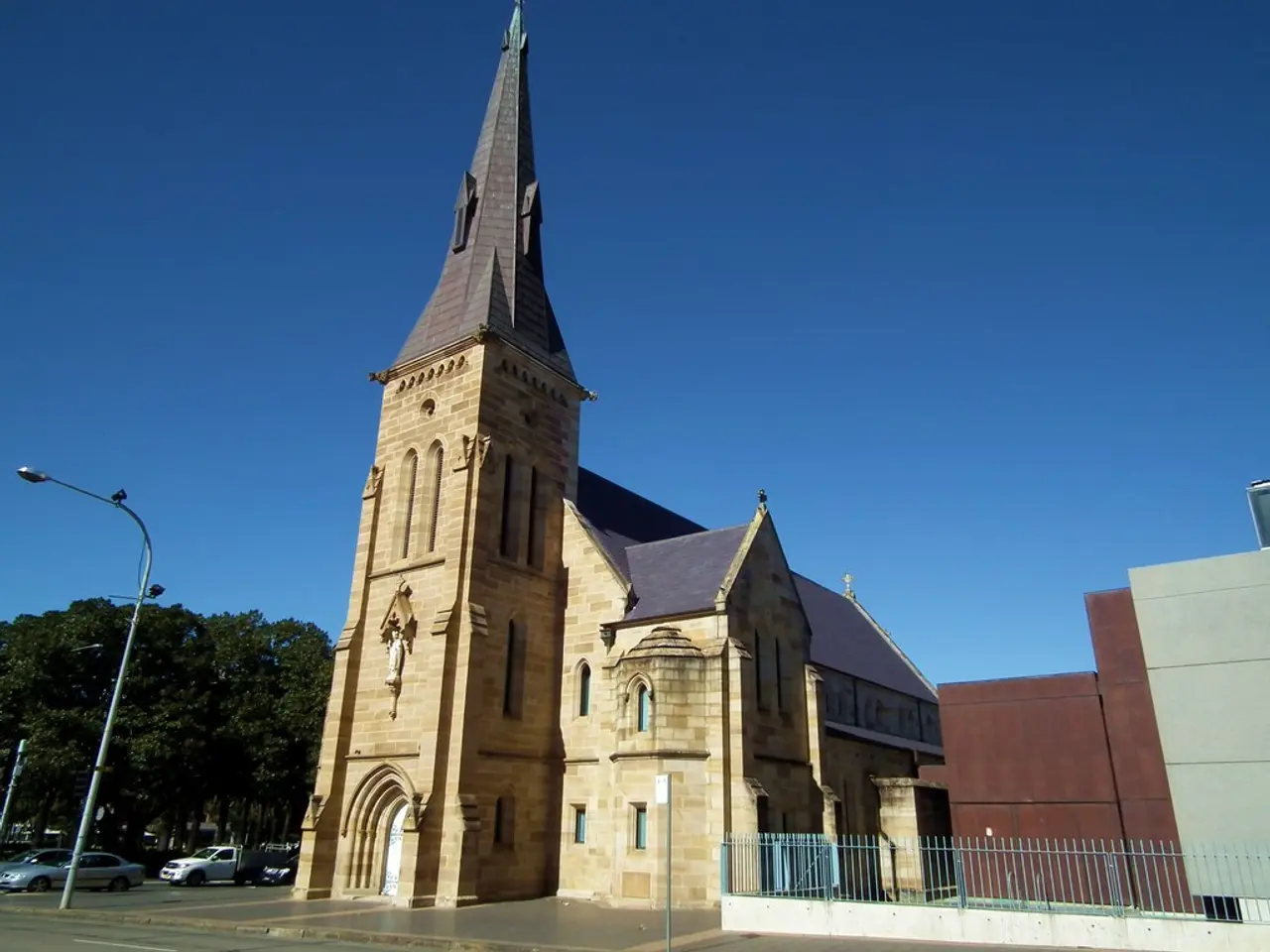Nazi Leader's African Associates
In the bustling city of Johannesburg, South Africa, a pair of German authors find themselves navigating a complex web of cultural perspectives, political alignments, and historical legacies.
Upon their arrival, they are picked up by a friendly black taxi driver named Alfred. Contrary to their initial suspicions, Alfred's friendliness was not a mask for ulterior motives, but a genuine welcome for the visitors from Germany. Alfred's joy upon learning of their nationality was palpable, reflecting the generally positive sentiments towards Germany in South Africa.
However, not everyone shares this sentiment. A white South African woman the authors encounter expresses a favorable view of Adolf Hitler, linking Trump's dislike for Germans to their past actions, specifically Hitler. This unexpected perspective on history and politics serves as a stark reminder of the enduring influence of the past.
The woman's perspective on cultural memory is that it can be shaped and interpreted differently. This is evident in her criticism of renewable energy, stating it leads to constant blackouts. In a surprising turn, she suggests a need for a new Hitler to end the use of renewable energy, specifically wind turbines. The authors, who express a liking for wind turbines, disagree vehemently.
The conversation takes a more serious turn when Alfred accuses Israel of committing genocide against Palestinians. The authors, disagreeing with Alfred's assessment, blame Hamas for the situation in Gaza. Alfred believes that Germany's past actions, such as keeping Jews within their borders, have consequences, like the current situation in Gaza.
Despite these differences, Alfred and the authors share a common dislike for Donald Trump. Johannesburg, known for its serious crime problem, offers a stark contrast to the political discourse. The woman indicates that the memory of Hitler is not forgotten in South Africa, and even suggests that someone like Hitler could be useful in current South Africa.
The current perspective on Germany in South Africa is characterized by a strong foundation of shared democratic values, close economic and political cooperation, and a desire to deepen ties, especially in trade, development, and renewable energy sectors. Germany is seen as a major economic partner, with over 600 German companies employing more than 100,000 people in South Africa. There is active cooperation in innovative areas like hydrogen fuel cells for alternative vehicles, reflecting a joint commitment to renewable energy technologies.
In terms of development cooperation, Germany is shifting from traditional humanitarian aid towards long-term partnerships with local actors and state systems in South Africa, aiming to foster sustainable development and reduce dependency on foreign aid workers. This shift includes substantial financial support, such as a recent EUR 500 million loan through Germany’s development bank KfW to South Africa.
In summary, this journey to Johannesburg offers a glimpse into the multifaceted relationship between Germany and South Africa. Despite differences in personal perspectives, the two countries share a strong foundation of democratic values and economic cooperation, with a focus on sustainable development and renewable energy technologies. However, Germany faces internal calls to accelerate and deepen engagement with South Africa and Africa more broadly.
[1] "Germany-South Africa Relations: An Overview." German Embassy in South Africa, www.southafrica.diplo.de. [2] "Germany's Africa Strategy: A New Approach." German Federal Foreign Office, www.auswaertiges-amt.de. [3] "Germany-South Africa Relations: A Joint Declaration on Climate and Energy." German Federal Foreign Office, www.auswaertiges-amt.de. [4] "Germany Provides EUR 500 Million Loan to South Africa." KfW Development Bank, www.kfw.de. [5] "Germany's Africa Strategy: A New Push for Economic Engagement." Deutsche Welle, www.dw.com.
- Amidst the vibrant lifestyle of Johannesburg, the authors engage in discussions about various subjects, including politics, history, and renewable energy, showcasing the complex social-media-fueled discourse in the city.
- As they delve into these conversations, the German authors, who are passionate about entertainment and pop-culture, find themselves confronted with unexpected views on personal-growth and education-and-self-development, particularly when it comes to historical figures like Adolf Hitler.
- Despite the political differences, their travels provide insights into the growing career-development opportunities in the science-fiction-and-fantasy industry, as South Africa has been producing intriguing local content, such as the acclaimed series "Black Mirror: South Africa".
- During their stay, they also discover common ground with Alfred regarding their shared love for books, as they discuss novels and literature, providing a refreshing break from the intense political conversations.
- After their journey, the authors return home, armed with fresh perspectives on South Africa, its populace, and the intricate relationships within the cultural, economic, and political landscapes, inspired to write extensively about their experiences, contributing to the ongoing dialogue on the ties between the two nations.





